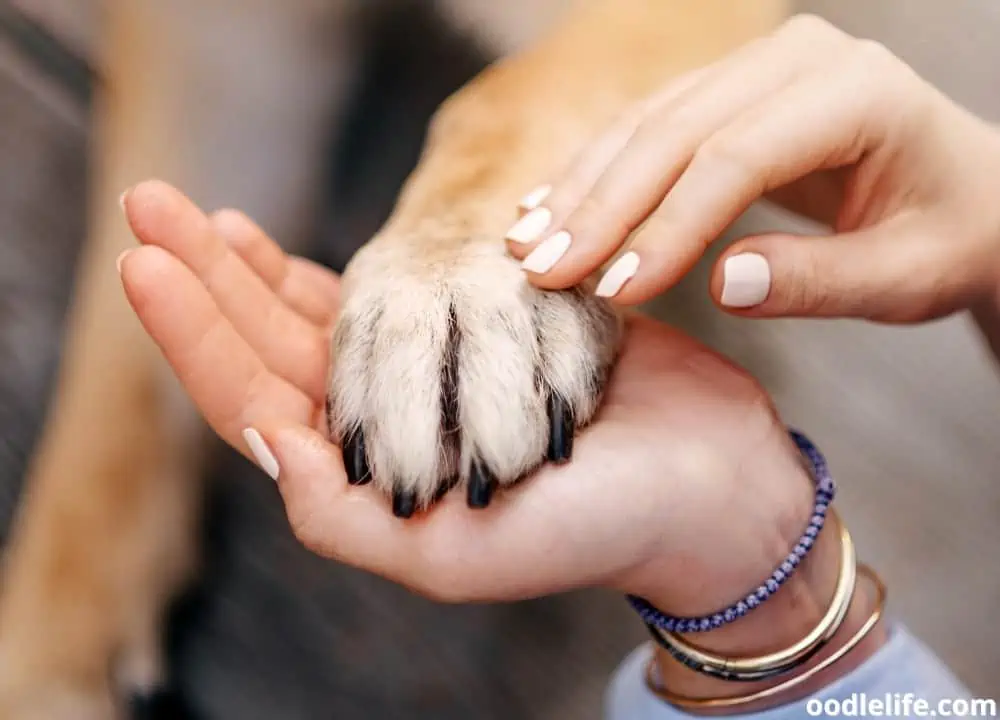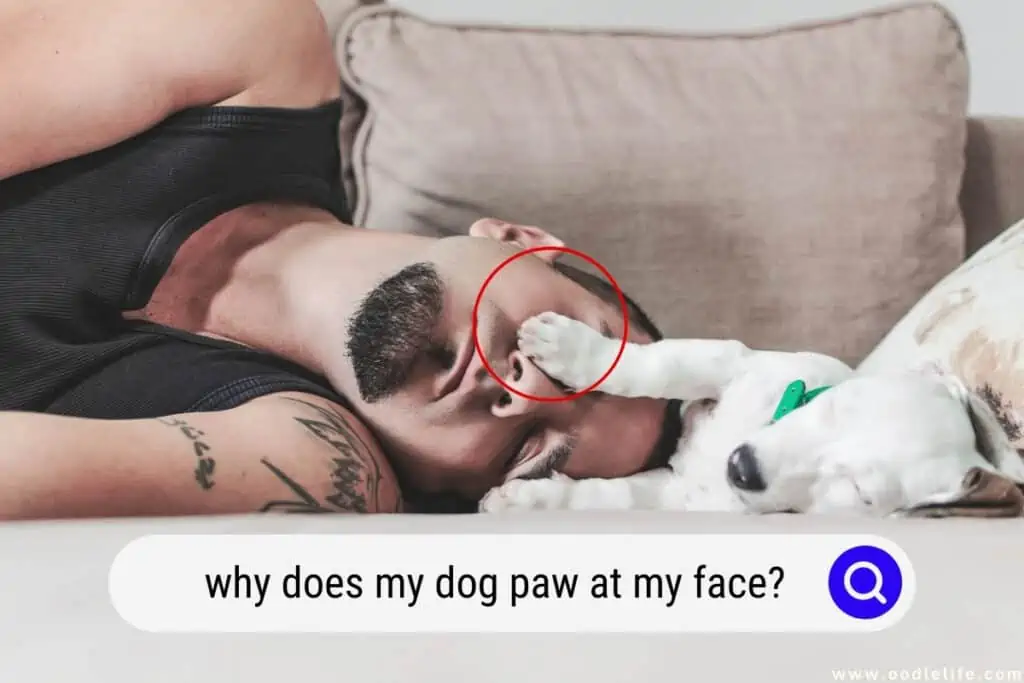Why Does My Dog Hit Me With His Paw?
It is no doubt that your four-legged friend loves you and wants constant attention. However, although it is absolutely adorable, having your dog constantly paw at you is no fun.
Since they can’t speak, dogs resort to poking or pawing when they want attention or while trying to communicate something. But what exactly are they trying to tell us?
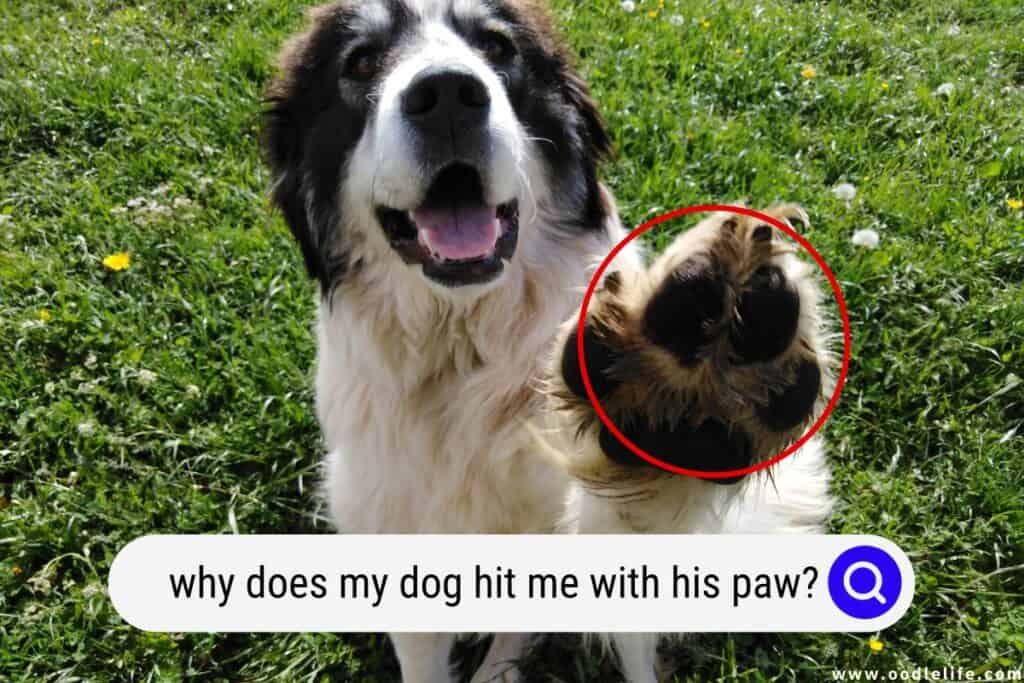
If your dog keeps hitting you with its paw, you should know why and what you can do about it. In this blog post, we’ll look at all the reasons your dog is hitting you with his paw and what you can do about it.
Reasons Your Dog Is Hitting You With His Paw
There are numerous reasons that will have your dog hit you with its paws.
Your Dog Wants Some Attention
Poking someone is one of the most effective ways of getting their attention, and dogs are aware of this as well! Pawing might occur more often when you discourage your furry friend from displaying other demonstrative behaviors or barking loudly.
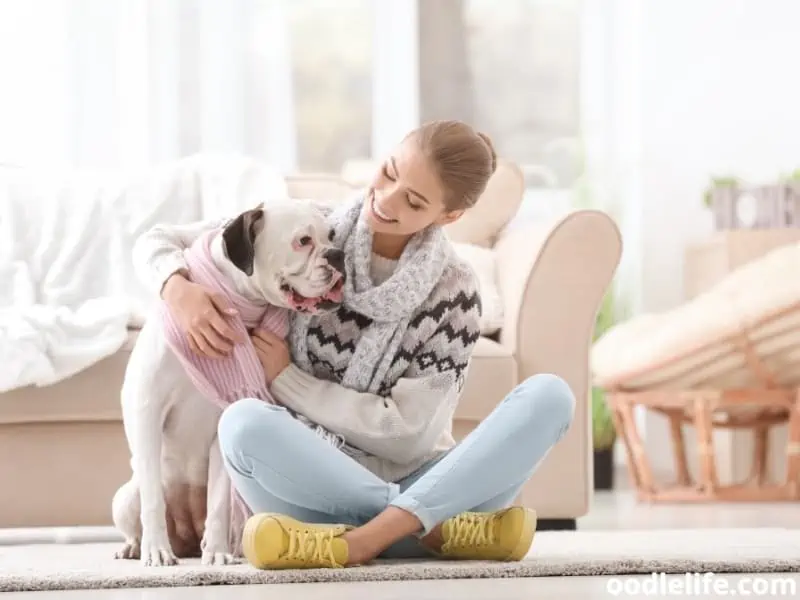
In such situations, this behavior is a way for your dog to get your attention quietly. You might find your dog hitting you with their paw when you are busy and need to be more attentive to their requests.
If this behavior is displayed when you stop petting them, they want you to continue petting them or give them belly rubs. Pawing can also occur when the dog is trying to alert you about something.
Asking For Food
When a dog hits you with his paw, chances are that they are looking for food or its favorite treat. You can tell your dog is looking for food if they only paw at you whenever you sit down to eat something. Your dog might learn to paw close to mealtime if you have a particular eating routine.
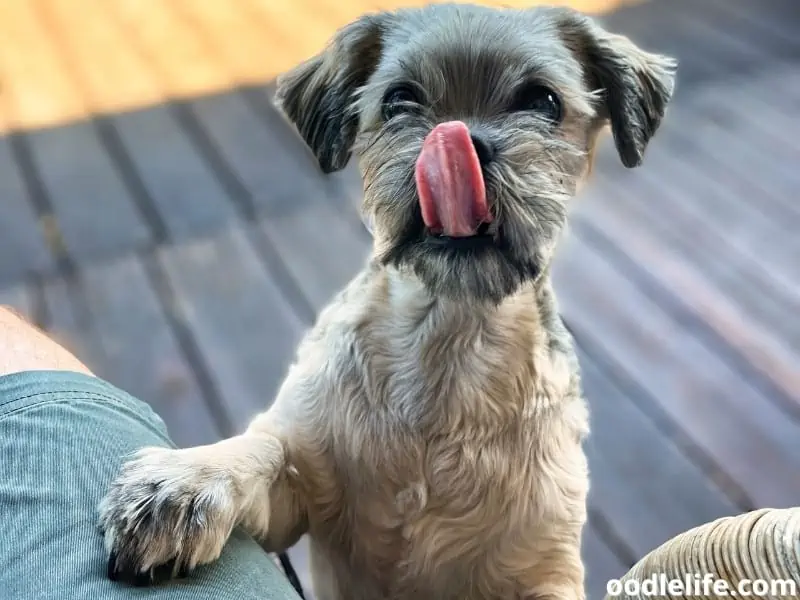
Do you give them table scraps or extra treats? This pawing behavior can quickly turn into rowdiness when you give your puppy human food, as they regard it as a reward.
Your Dog Is Showing You Affection
Petting doesn’t only work one way! Your dog might be showing affection and expressing it through physical touch. Some dogs might use their paws more often and make physical contact with someone they care about.
For dogs hitting with their paws is a peaceful bonding moment and might be used when engaging in playtime.
Previous Training
Some dogs might hit you with their paws because they are trained in the past. It is most common in adopted dogs or ones you got as adults.
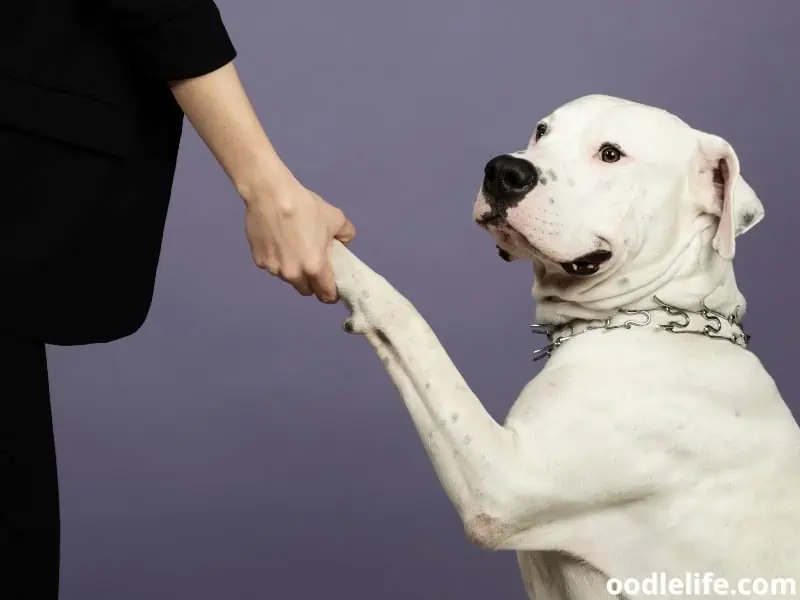
If you have adopted someone else’s dog, you might not know the habits or tricks they exhibit. What you might view as weird paw hitting may be your dog’s way of shaking paws or high-fiving.
Expressing Empathy
Loyalty isn’t the only aspect people love about their furry companions. Dogs are highly empathetic to their pet parents owing to their incredible emotional intelligence. Your dog might hit you with their paws to express sympathy for you.
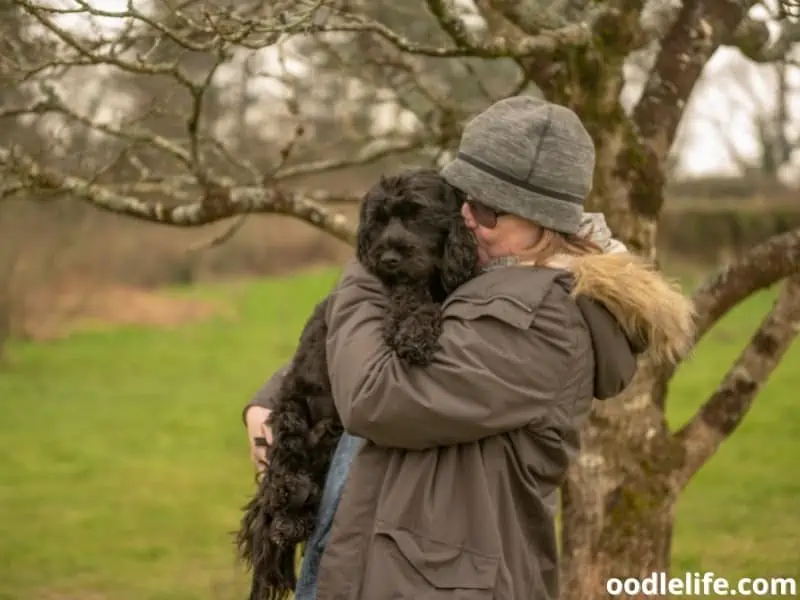
A dog can tell when its parents are under stress, sadness, grief, depression, and anger. In these times, your pooch will hit you with its paws, howl, and bark, or he might simply lay close to you to give you comfort. It is their way of trying to console you and show that they understand.
Your Dog Wants To Play
A playful paw in the face can also be a cue that your dog wants some playtime. If they seem excited or worked up, they could be wanting to engage you in a game or ten. Although it might be time for play, don’t give in!
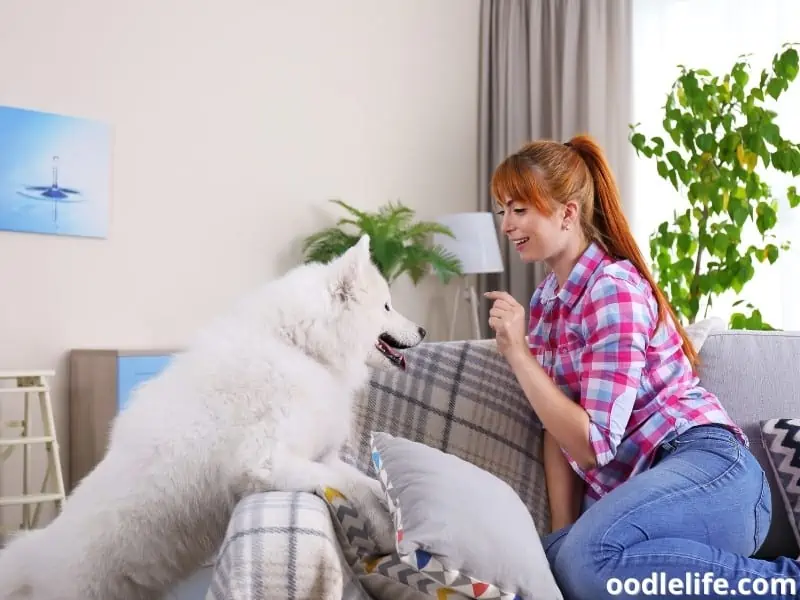
Only offer toys or start playing when your dog is calmly and nicely sitting or lying around you, or your dog will perceive its pawing as a behavior that will get it what it wants.
Your Dog Did Something Wrong
Your pup might hit you with its paws to apologize for its actions. To figure out if the paws are used to express guilt, you might notice other signs, such as a tucked tail, flattened ears, and a hunched posture.
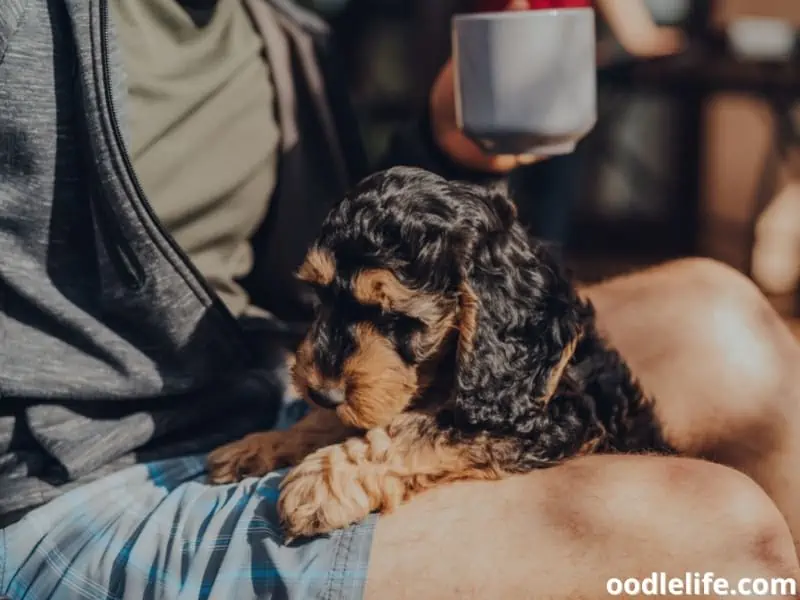
Pawing you can be their approach to ask for forgiveness and displaying submission to pet parents at that moment. Some dogs might use this approach because it worked the first time they did it.
Displaying submission doesn’t mean that your relationship with your puppy is negative. However, hitting with their paws in submission means that your dog understands who calls the shots and gives you respect.
Dominant Behavior
Hitting you with their paws can also be a sign of dominance, and this behavior is completely unacceptable. Your dog might use their paws to communicate that they are the one in charge. It is particularly true if a dog puts their paw on top.
A dominant dog will display physical signs that show no respect for its pet parents. You can pinpoint this if the hitting behavior is brutal or results in scratches. The majority of dominant dogs will aim for the face.
If your pup hits you with its paw on the face or harder than usual, it is time to take measures to control this behavior. It can be a phase in which your furry friend might act like a rebellious teenager and become impulsive.
Dogs are technically teenagers from about 6 to 18 months. During this period, they will test their boundaries (and your patience!), so nip the problem in the bud and stop the behavior immediately.
Is My Dog Hitting Me With His Paw Bad Behavior?
Just like eye contact and barking, pawing is a way for your dog to communicate with you. Even though there is nothing to worry about when it comes to pawing, it is recommended to discourage this behavior.
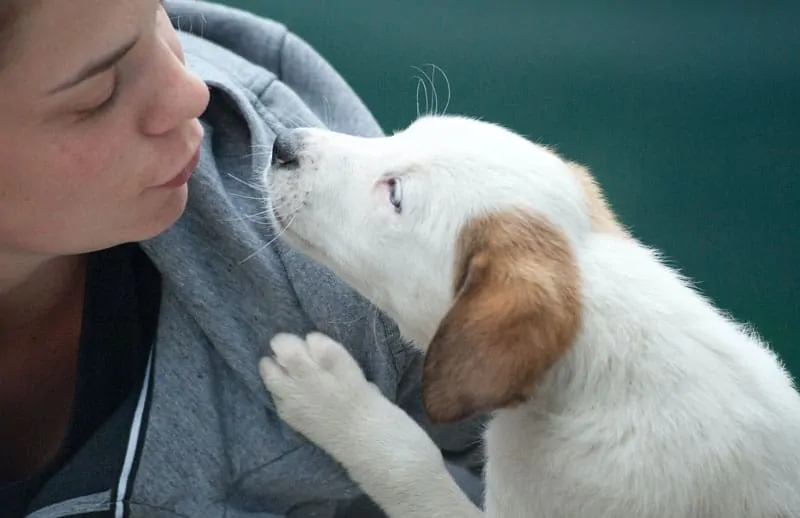
If you cannot stop your furry friend from pawing, teach them to control it. When a dog hits you with their paw, it can quickly lead to other damaging forms of communication, including scratching.
Whether pawing is a good thing or bad is dependent on different situations. It is considered an excellent communication method if a dog is hitting you with their paws when it needs to go out.
However, if your puppy hits you every time you get dressed, the behavior will get annoying quickly. Ignoring the behavior might escalate the situation if your furry companion becomes rowdy. In short, pawing isn’t a bad thing, but it can escalate to other more unpleasant situations.
Also, keep in mind that if your dog is a constant pawer, you’ll need to clip their nails short and file them down, or it could result in nasty scratches not just for you, but for any other guests or members of your household.
How to Stop Your Dog from Hitting You with Their Paws?
Now that you know the different reasons why your furry friend might be hitting you with their paws and why it shouldn’t be encouraged, let’s move to the action phase. To take effective measures, you must figure out the specific reason your dog is pawing. To control this behavior, you can apply the following strategies:
Teach Shake or High-Five
Even though teaching your dog a trick that requires hitting with their paw might seem counter-intuitive, teaching them to high-five or shake is effective so that they now can paw on command. Your dog will be less likely to hit you randomly with its paw when the behavior is given a name and only done upon a specific command.
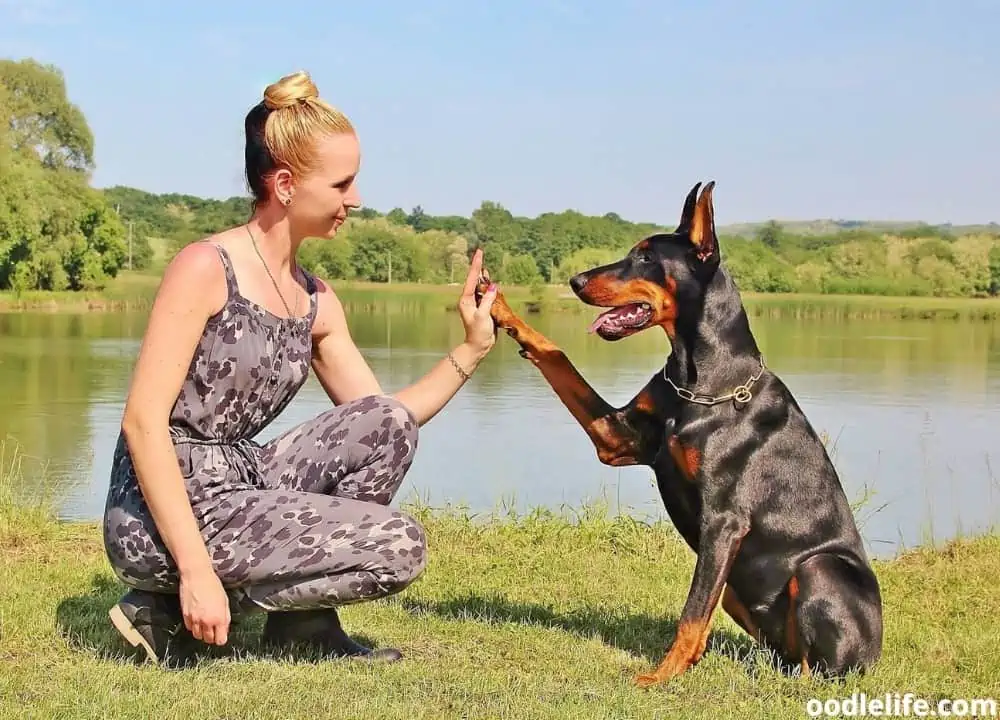
Redirect Your Dog’s Focus
Another technique is to refocus their attention on something else when they start pawing. Tell them to “sit” or “stay” or to lie down. However, do not reward the behavior with treats or attention.
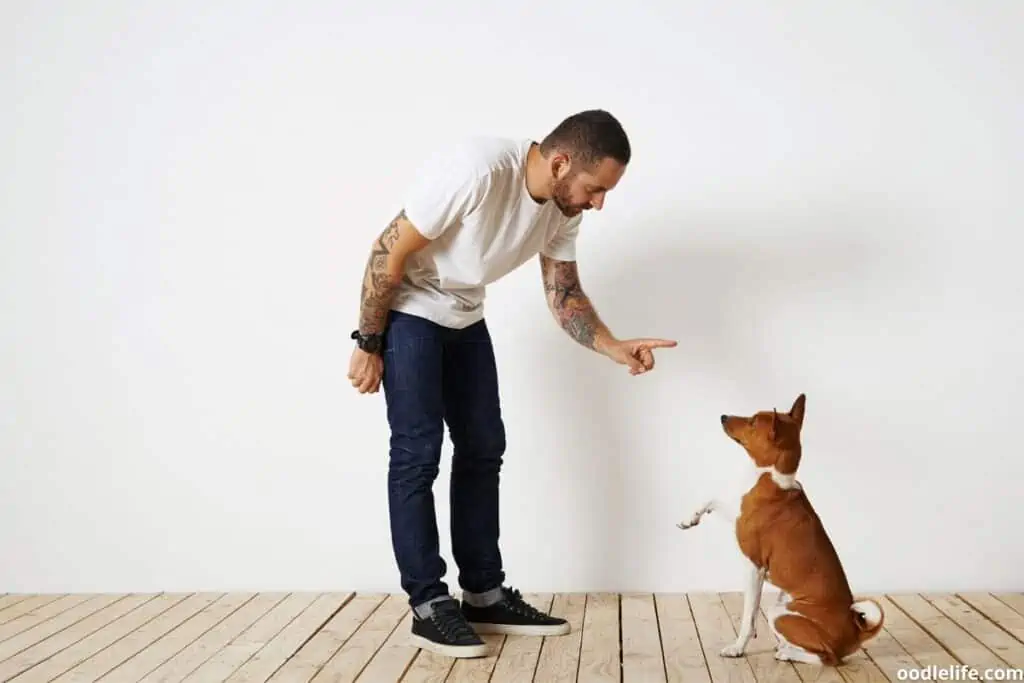
Only give them attention or pats when they are not pawing at you.
Remove the Opportunity
Pawing behavior will increase if you give your dog what they are asking for with this behavior. For instance, if your furry friend is hitting you with their paw for a treat and they get one, it will encourage them to use the same trick to get a treat again.
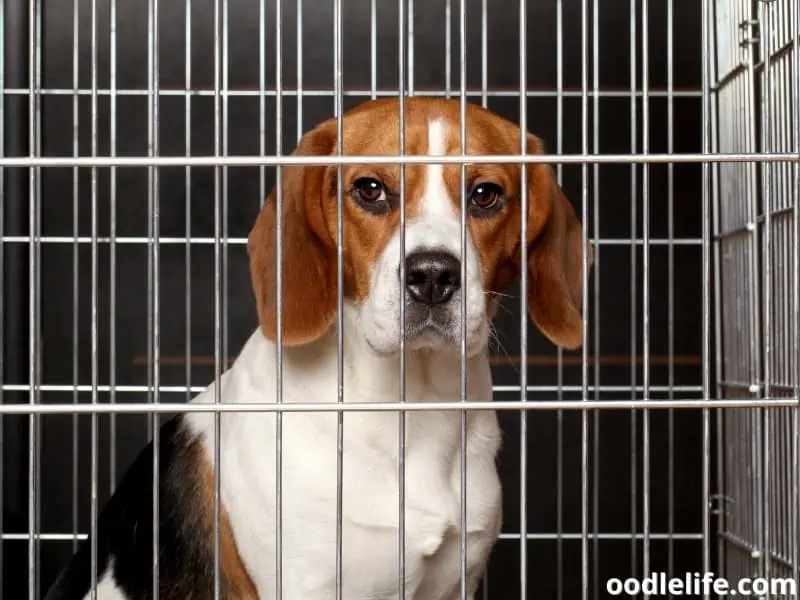
This strategy is easy to use in straightforward situations. However, if a dog paws at you when you are getting ready to leave the house, you might need to crate them or make them stay in another room.
Reward Positive Behaviors
Positive reinforcement always works best. Only reward your dog when it is quietly and calmly sitting or lying down beside you.
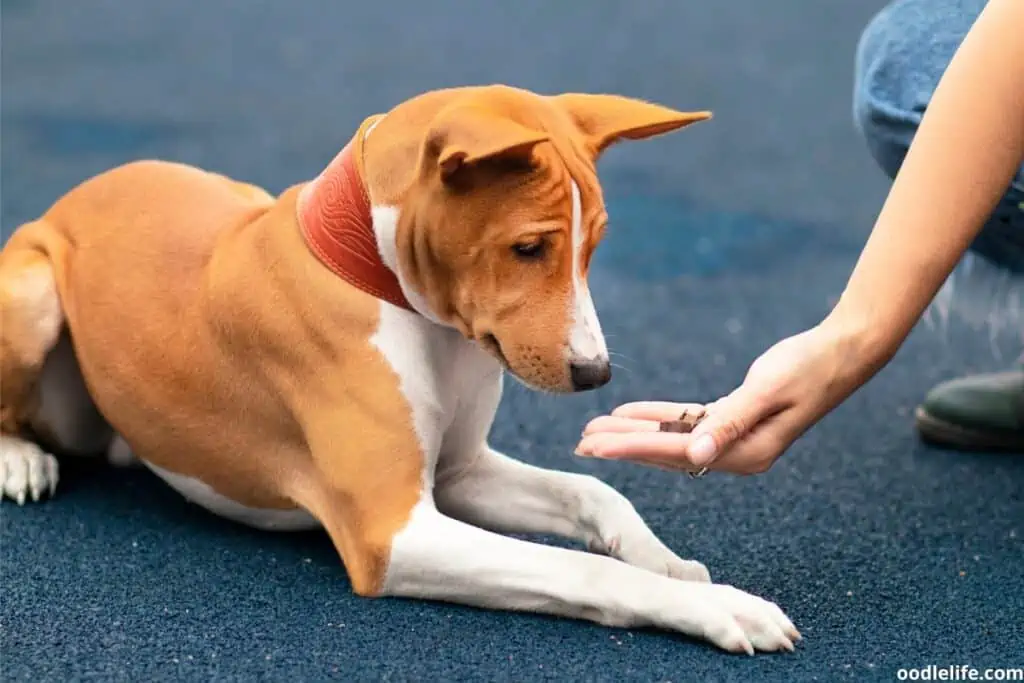
Ignore them when they are pawing at you and only give attention when they are exhibiting desirable behaviors. It will encourage your dog to make better decisions rather than smacking you in the face all the time!
Final Thoughts
A playful poke from your pooch’s paw might initially seem cute and funny. However, if this becomes a habit, it must be controlled. This is especially true for bigger dogs because it can have unpleasant results.
After you pinpoint the reason, it will become easy for you to utilize appropriate measures to control this behavior and prevent it from escalating.
